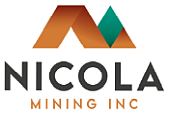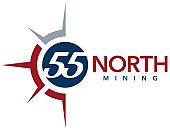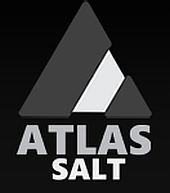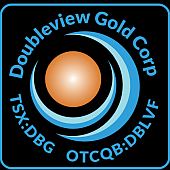 How to decrease sector risk by owning hundreds of mineral assets
How to decrease sector risk by owning hundreds of mineral assets
| Coreena Robertson, The Market Online |
Canada based Globex Mining Enterprises (TSX:GMX) owns more than 250 assets across dozens of mineral categories from base and precious metals to industrial minerals. Globex has a history of minimal share dilution, no debt and consistent income from royalties and options. Here to discuss Globex as an investment opportunity is President and CEO Jack Stoch.
TMO: Right out of the gate, what makes Globex stand out as an investment in the metals and mining space?
Stoch: I think the thing that makes us stand out is that we’re so different in our business model. We’re not a gold company. We’re not a copper company. We’re not an industrial mineral company. We’re a company that is focused on any kind of asset that has the potential to generate revenue. So we have a huge number of assets and it is extremely diversified. As I said, gold, silver, copper, lead, zinc, talc, magnesium, antimony, lithium, you name it, we have it. We always like to say, half the periodic table, so that we’re always ready when things come into favor. For example, recently antimony, we already have antimony properties where other people are looking. The other thing about the company, which makes us a bit different is that we actually have money and we make money. So, we have cash and shares of about $25 million worth and no debt. And as well we own over 253 projects, including 103 royalties. So, we’re a bit of a different model.
TMO: Now, for over 40 years, Globex has created value through solid financials, and you’re well-funded with $25 million in cash as well as operating revenue positive. What is it about your business strategy that differentiates Globex from other royalty and streaming companies?
Stoch: Simple. We make money. We’re not constantly diluting our shareholders trying to raise money. So, we have a lot of revenue coming in over time from various option deals where we acquire projects, we bring them to the point where they’re attractive to other companies and other companies pay us for the right to try to earn an interest in the project. So, a typical deal would be say, a four-year deal, cash, shares and a work commitment each year. They earn their interest. We end up with a gross metal royalty at the end of the story. So, it’s that model that makes us so much different.
TMO: And with your strong financial performance, how important is it that you don’t have to constantly raise additional capital?
Stoch: It’s extremely important. If you’re a shareholder, it means that we’re not diluting shareholders constantly which is the habit of most other junior companies. Most other junior companies acquire a project, they raise money to acquire the project, then they raise money to work the project. If they’re lucky, they raise more money to continue work. If they’re not lucky, they dump the project, they raise more money to get another project, and it’s just a continuous cycle. We don’t do that. We actually make money. We own our assets. We’re not looking for them. We own them, and we actually generate revenue from other people paying us, trying to earn an interest in our assets.
TMO: Now, on a graph, it’s a constant upswing, it’s from 1996 to 2024, the number of projects and royalties continues to grow. Currently, you have over 250 projects, including, like you said, 103 royalties. What do you look for in a potential acquisition target?
Stoch: Potential, potential, potential? We don’t really care what it is, because we view the final product as money. So, it doesn’t matter if the money comes from gold or if it comes from copper or from talc. If the project in the short term or the long term, we see exploration potential and then potential for production, we go for it. And then we worry about whether it will be in favor as time goes on. We don’t worry about that in the short term. That’s the long-term discussion.
TMO: Alright. Now tell us about the main jurisdictions that you operate in and how important location is in the metals and mining sector.
Stoch: Unlike a lot of other companies, we care about democracy, and we care about rule of law. So, we work in Canada, the US, we have a silver royalty in Saxony, Germany. And we’re in the process of acquiring a number of projects in Portugal. We want to work in countries where we know that the government will honor the rule of law, that if we own something today, we will own it tomorrow. A lot of companies are willing to put up with that risk where, well, you saw what’s happening now in Mali and Niger and all those other countries in Africa, or what happened in Panama, where the people do the investment, it’s an immovable asset, and then the government decides they’d rather have it than having you have it. We’re not interested in that.
TMO: And for those not clear on the royalty payments, how does that work?
Stoch: Royalty payments are based upon the revenue from the actual production. So we have invented a royalty, which is called a gross metal royalty, which is a bit different than the net smelter or a net profit. The gross metal royalty is based upon the material that is the final product. So, for example, if it’s gold and if a hundred ounces of gold are produced and we have a 3% gross royalty, we get three ounces of gold. It’s our choice to get paid in cash or actually in the metal. That’s a bit of a different model than other people.
TMO: Alright. Now, how is Globex positioned for the metal and mineral demand, you know, in terms of the supply and demand trends you foresee in the future?
Stoch: Our diversity is our strength. I think I mentioned it before, so we’re well positioned in that. The perfect example as current is antimony. I mentioned it before. Nobody cared about antimony before, but all of a sudden China cut off the export of antimony, which is used in fire extinguishers, but also military uses among others. Now everybody’s running after looking for antimony. Well, we have antimony. Why? Because we know that antimony is a pathfinder for gold. We picked up antimony gold projects in New Brunswick. They are advanced projects with drill holes, with values in antimony and gold. We are well positioned. So, we constantly do that. We acquire things that other people don’t care about and on the understanding that with time, things that are of no interest will all of a sudden gain value and become of interest and generate revenue for us.
TMO: That’s a good strategy. Now what about EVs, you know, all the minerals that need to go into EVs. How are you positioned for that?
Stoch: We have it all. We had it all before EVs were a thing. We have the copper, we have manganese, we have lithium, you name it, we have it. And we’re well positioned before the craze started.
TMO: And I’m going to assume the same thing holds true for future energy demands.
Stoch: Yeah, I mean, a lot of things, there’s a lot of experimentation going on at the moment for example, for manganese. And we have manganese royalties and manganese properties. So, like I said, I’m sort of repeating myself, but we’re positioning ourselves constantly to be ready. And we don’t know what we’re getting ready for, but we’re ready anyway.
TMO: So, let’s just talk about future energy demands and how you feel that you may be positioned in terms of maybe uranium, hydrogen or whatever may come down the pipeline as we know that the future of energy is going to be varied and require different sources.
Stoch: I mean, we’re well positioned and in our business model of trying to be before the curve, you know, when the price of uranium, for example, started to rise, we went out and acquired uranium projects when people weren’t really gathering the fact that things are going to get better for uranium. So, the price of uranium took off. We have a number of projects, large uranium projects in Quebec. We’ve optioned them out. We’re generating revenue from them in the form of cash payments, shares and so on. Then we also have a royalty. Hydrogen, you mentioned hydrogen. I know nothing about hydrogen, but we have a hydrogen project because we happened to be well placed in the middle of someone else’s hydrogen play. So that all of a sudden now is an advanced hydrogen project. So we’re part of almost anything that happens.
TMO: Well, it sounds like if they need it, you have it.
Stoch: Agreed.
You can Globex Mining. on the TSX under the symbol GMX or head to its website at globexmining.com for more information.
Company shares were last trading at C$0.85.
Join the discussion: Find out what everybody’s saying about this stock on the Globex Mining Enterprises Inc. Bullboard and investor discussion forum, and check out the rest of Stockhouse’s stock forums and message boards.
The material provided in this article is for information only and should not be treated as investment advice. For full disclaimer information, please click here.






























